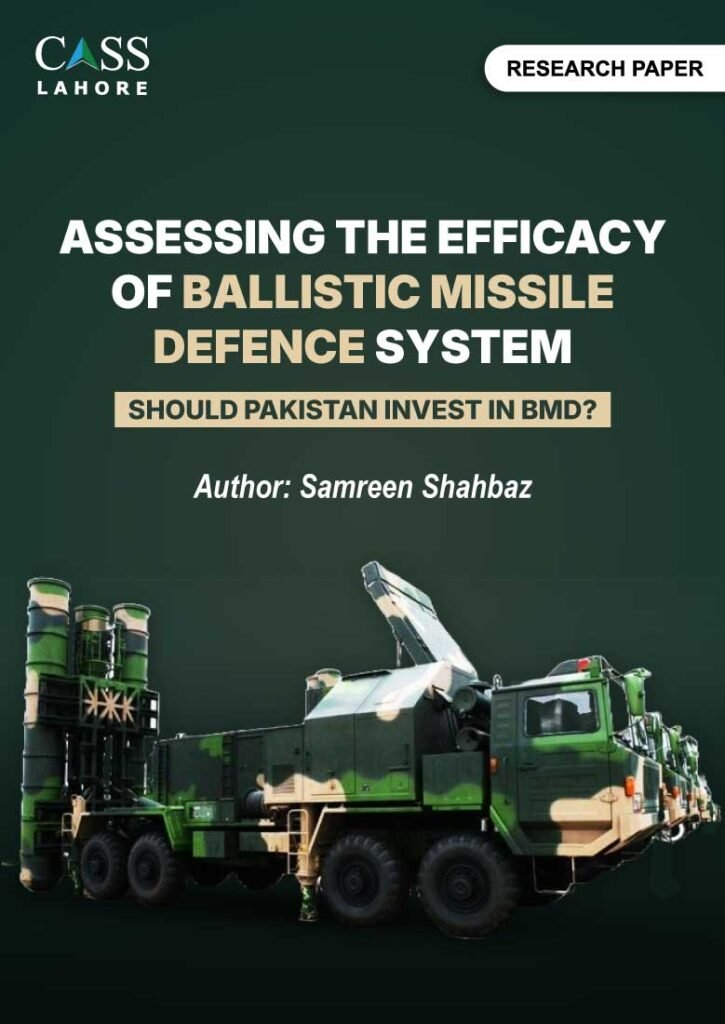ASSESSING THE EFFICACY OF BALLISTIC MISSILE DEFENCE SYSTEM: SHOULD PAKISTAN INVEST IN BMD?

ABSTRACT
The advancement of ballistic missiles has led to a quandary throughout the world to protect state sovereignty and national security. In this context, many countries have felt the need for Ballistic Missile Defence (BMD) systems. Based on the study of the existing defence systems, this paper aims to assess the effectiveness of BMD systems in different ongoing conflicts. Further, this paper contends that Pakistan should refrain from getting entangled in a quest for expensive and more often than not, unreliable technologies. The study is theoretical in nature employing qualitative methodology entailing content analysis as a way of measuring operational performance of different BMD systems. This paper critically analyses whether BMD deployment would improve the existing security posture of Pakistan or lead it into a trap of a vicious cycle of an arms race. Considering the overall economic and technological aspects of Pakistan, it contends that it is appropriate for the country not to opt for BMD systems. The rationale is that missile threats from Pakistan’s adversaries can easily be countered by its conventional and nuclear deterrence. Thus, this paper finds that BMD cannot be a viable strategic option for Pakistan. It will not increase the defence capabilities of the country but can place a tremendous burden on the already strained resources of Pakistan without accruing much value for the money spent.

Samreen Shahbaz
Research Assistant
Available on Request
CASS LAhore

The Centre for Aerospace & Security Studies (CASS) was established in July 2021 to inform policymakers and the public about issues related to aerospace and security from an independent, non-partisan and future-centric analytical lens.
CASS Newsletter
- Home
- About Us
- Research Domains
- Publications
- Events
- Gallery
- Contact Us
@2021 - All Right Reserved. Designed and Developed by PenciDesign




